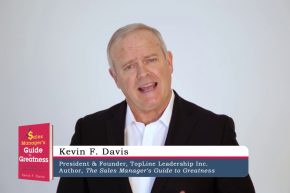The Essence of Entrepreneurship
Our discussion centered around entrepreneurship and its significance in today’s business landscape. Luis Báez defines entrepreneurship as a mindset and a culture that empowers individuals to be self-motivated and accountable to the business. He discovered his entrepreneurial prowess after stepping away from Silicon Valley and launching his own business. He stressed the importance of individuals assuming multiple roles and responsibilities, akin to a project manager, when building their own business.
I pointed out that salespeople often embody the entrepreneurial spirit within an organization, given their variable pay and the need to be innovative. However, this sense of ownership or accountability may not be as prevalent in other departments. Luis concurred, noting that many CEOs and executives have risen through the ranks of the sales organization as it demands a diverse skill set.
Fostering an Entrepreneurial Spirit
To nurture an entrepreneurial culture within an organization, Luis suggests starting with leadership buy-in. Leaders need to shift their mindset and eliminate themselves as bottlenecks in processes. They should focus on automation and delegation, allowing for more efficient operations.
The Power of Coaching
Luis underscored the importance of coaching in fostering an entrepreneurial mindset within organizations. He explained that many leaders underestimate the value of coaching, often assuming that providing answers will yield quicker results. However, he emphasized that coaching is about helping individuals develop their confidence and capacity to arrive at solutions independently.
Luis advocates for leaders to reconfigure their approach to coaching by asking pointed questions that guide individuals towards decision-making and problem-solving. He stressed that coaching is not about imposing the coach’s thinking or answers but rather about helping the individual reflect on the problem, desired outcome, options, and accountability.
Overcoming Resistance to Coaching
Addressing the resistance some leaders may have towards coaching, Luis stated that if leaders dismiss coaching as unnecessary or unimportant, they will not see the return on investment for fostering an entrepreneurial culture. He emphasized the importance of leaders being committed to coaching and embracing moments of analysis and growth.
Dealing with Failures Constructively
Luis and I also discussed the importance of reacting to and approaching failures or setbacks in a constructive manner. We highlighted the need to assess desired outcomes and actual outcomes and explore opportunities for improvement and growth. We also touched on the importance of involving other stakeholders and addressing bottlenecks within the organization to foster a customer-centric culture.
The Journey to an Entrepreneurial Culture
In conclusion, Luis emphasized that developing an entrepreneurial culture takes time and a concerted investment. It’s not an overnight transformation but a journey that requires commitment, patience, and a willingness to learn and grow. As a host, I found this discussion incredibly enlightening, and I hope you, as readers, find these insights as valuable as I did.
Our Host
John is the Amazon bestselling author of Winning the Battle for Sales: Lessons on Closing Every Deal from the World’s Greatest Military Victories and Social Upheaval: How to Win at Social Selling. A globally acknowledged Sales & Marketing thought leader, speaker, and strategist, he has conducted over 1500 video interviews of thought leaders for Sales POP! online sales magazine & YouTube Channel and for audio podcast channels where Sales POP! is rated in the top 2% of most popular shows out of 3,320,580 podcasts globally, ranked by Listen Score. He is CSMO at Pipeliner CRM. In his spare time, John is an avid Martial Artist.








Comments